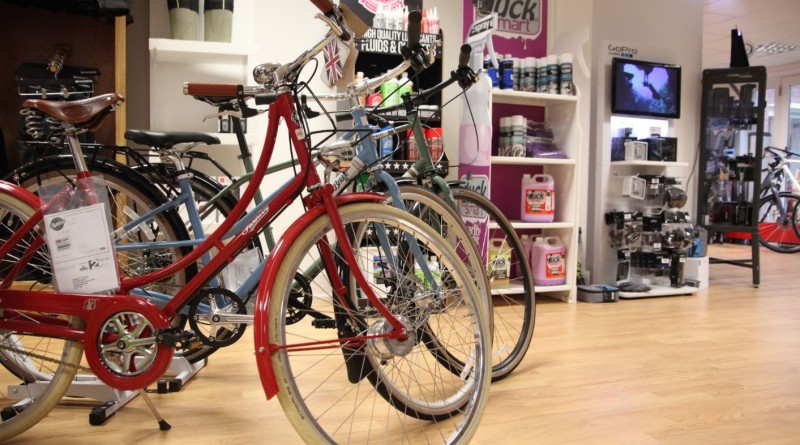Jay Townley: Why is simple so hard?
I find myself asking this question more often these days as I review research data and stories about consumers turning away from brick-n-mortar retailers in favour of alternatives like direct online retailers – something that bike shops are all to familiar with.
Tom Ryan wrote a story that all bike shop owners should read titled: “Are store conditions driving consumers online?” that appeared on the RetailWire website (www.retailwire.com) May 9 of this year.
Ryan points out that: “One less talked about advantage of online shopping is avoiding the grime, odors, sloppiness and other forms of annoyance that often occur at physical retail.”
I was taken aback! I started working, as a teenager, for a bike shop in St. Paul Minnesota. The first task I had and the first job function one of the shops owners’ taught me was properly sweeping and mopping the floors and cleaning the rest room.
Keeping your bike shop clean is basic and it is also simple! I frequent one of the fastest growing fast-food franchises in the region I live in and am continually impressed by the frequency and diligence of the staff cleaning the floor – basic and simple retailing! What I am also impressed by is the good humour and cheerfulness that most of the staff exhibit in carrying out this regular, daily task.
When I asked the staff about this I was told that dining area maintenance is an important part of their customer service training – and the general good humour comes from what they are also taught about how to interact with customer in the dining area.
Hence my question; why are the simple basics of keeping a retail store neat and smelling clean so hard for some bike shop owners and staff to embrace?
From experience in talking to, educating and training bike shop owners, managers and staff I realise part of the answer is simple. It is easy to get used to the way things are, and over-look basic maintenance, because the basics like sweeping, dusting and cleaning the rest room and dressing rooms “disappear” in the rush to serve customers. A bike shop has to process special orders, get service work checked-in and get deliveries received and stocked. Besides, how important can the basics really be!
 In these turbulent times when retail store traffic is declining and shoppers have numerous retail choices – the basics are extremely important.
In these turbulent times when retail store traffic is declining and shoppers have numerous retail choices – the basics are extremely important.
In his article Tom Ryan references a survey of “2,082 U.S. adults commissioned by Cintas Corp. that found that 78 percent of shoppers would not return to a store due to general bad odor, becoming the leading reason shoppers would avoid a store due to a facility issue.”
The other reasons consumers gave for not returning to a store that the research found were:
- Dirty restrooms (dirty floors, stalls, mirrors, odor) – 66 percent;
- Dirty surfaces (dust on displays, dust on floors and other surfaces) – 65 percent;
- Entryway cleanliness (cigarette butts, overflowing trash cans, unkempt appearance) – 60 percent;
- Dressing room conditions (dirty mirrors, dirty floors, broken locks, lighting issues) – 56 percent.
Consumers also cited as factors that would influence them in choosing to not return to a store:
- Broken or cracked glass, 53 percent;
- Plumbing issues (toilets and/or sinks not working), 52 percent;
- Slippery floors (wetness, dirt/dust), 52 percent;
- Noise (loud music, loud employees, phones ringing), 43 percent;
- Lighting issues (light fixtures out, not working properly, poor lighting), 40 percent; and
- Temperature (too hot/too cold), 30 percent.
If your bike shop, including your rest room and dressing rooms are always neat, clean and smell great, my compliments and keep it up.
If your bike shop isn’t always neat and clean – you have an opportunity to increase your customer close and retention rates, which translate to increased revenue and profitability.
A straight forward policy and procedure manual that makes it clear that basic maintenance is not only important, but essential, that is reinforced in weekly staff training and education sessions are great ways to make sure these important daily operational details do not “disappear.”
We as human beings don’t like change, but it can often be necessary. Some find it easier to complain and rage about online retailers than making the simple changes required make sure basic, bike shop maintenance is integrated into daily operations to make sure your bike shop isn’t driving consumers elsewhere.
The problems cited in the survey by Ryan in his article seemed to be more the result of a lack of investment, or commitment to maintenance, than understaffing. The most-common store associate-driven issue sited in the research appears to be general untidiness and this is attributable to a lack of staff training and education, again a basic, simple set of store policies and procedures that are regularly taught in staff meetings and contained in store policy and procedure manuals.
In this case embracing the simple and basic retail tasks like sweeping, vacuuming, mopping and dusting are far better than complaining and a more profitable solution to the problem of customers jumping to an online competitor!



